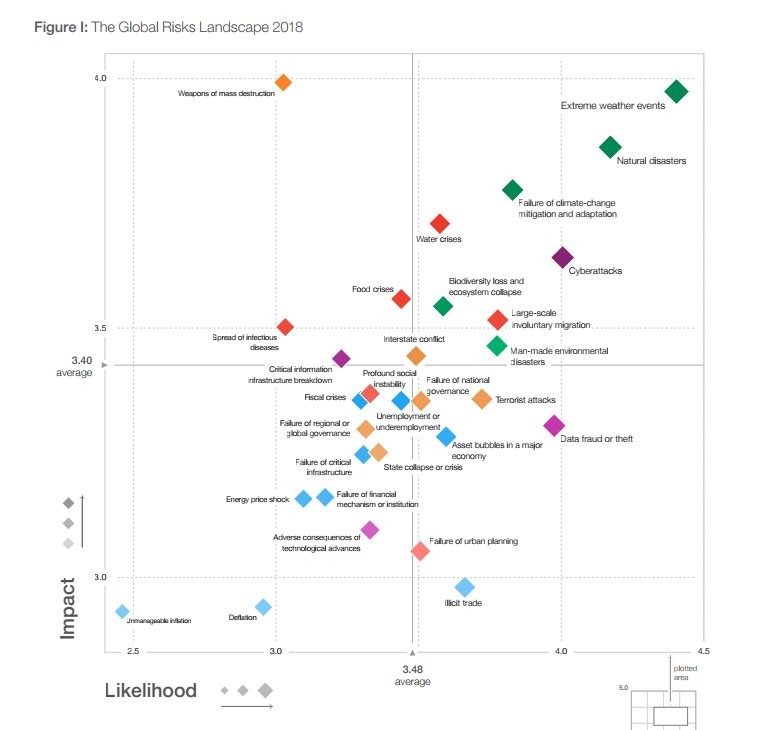World Economic Forum: Difference between revisions
Jump to navigation
Jump to search
Siterunner (talk | contribs) No edit summary |
Siterunner (talk | contribs) No edit summary |
||
| Line 44: | Line 44: | ||
:''"We need to convince every country in the world"'' to increase their commitments to cut emissions and ''"to save humanity's future".'' | :''"We need to convince every country in the world"'' to increase their commitments to cut emissions and ''"to save humanity's future".'' | ||
Revision as of 19:17, 28 January 2018
Some Salient Thoughts Expressed at Davos in 2018:
- Klaus Schwab, founder and executive chairman of the World Economic Forum, introduced the 360 focus of the gathering:
- “No individual alone can solve the issues on the global agenda”, he stated in opening the conference in what should have been obvious, but isn't given the announcement of US withdrawal from the global climate accord. This places the US as the only nation in the world to reject a cooperative approach to the common threat of climate/atmospheric/economic disruption.
- Mr. Schwab continued that the world is at "an inflection point where" there is “real danger of a collapse of our global systems”.
- The conference and WEC organizers proceeded over the course of the week to set out “multi-stakeholder” solutions in general agreement that global problems are best solved by countries working together.
- Anand Mahindra: "Climate change is the... biggest financial and business opportunity."
- "Why on earth are we talking about this as a compulsion or a burden?
- "Everything our group of companies has done to try and improve energy (consumption) or to reduce greenhouse gas emissions has given us a return."
- "We have to dispel the idea that there is a trade-off (for business)."
- Philipp Hildebrand, vice chairman of BlackRock, the world's biggest asset manager, told the WEF a new generation is ramping up pressure on asset managers to put money into investments with a strong environmental agenda and to push companies to play a bigger role in addressing climate change.
- "People are beginning to realise this problem is too big for governments alone to deal with.... Essentially corporations have to become part of this solution."
- "We're about to see the largest wealth transfer in the history of humanity. You have a new generation of clients... who simply care more about these issues."
- Insurance companies have a vested interest in switching their money away from fossil fuels, Thomas Buberl, chief executive of insurance company AXA SA, told Thursday's discussion on stepping up climate action.
- Investing less in coal "pays out significantly" in cutting the number of insurance claims and in being able to continue providing insurance, he explained.
- Jay Inslee, governor of Washington state, continued explaining challenge and opportunities.
- "We have to decarbonise the world's economy at a pace that cannot wait for the great inventions that might otherwise occur over a century," he said, adding they need to occur in "over a decade or so".
- Former US Vice President Al Gore summed up the politics in play.
- Fossil fuel subsidies total some $US 5.3 trillion a year, he pointed out, and in many jurisdictions lobbyists for the industry have "gotten lawmakers to put up obstacles to the installation of solar and wind".
- "We need to convince every country in the world" to increase their commitments to cut emissions and "to save humanity's future".
.
